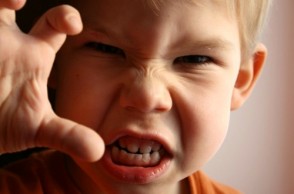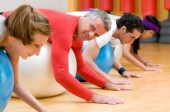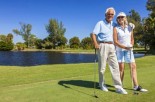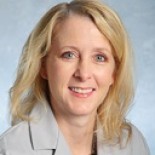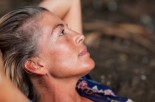Canceled Clients (4762)
Children categories

Train Your Body (438)
The show for fitness buffs or beginners. Expert guest from the American College of Sports Medicine (ACSM) discuss all areas of fitness, nutrition, athletics and sports medicine.
View items...
Staying Well (382)
RadioMD’s “talking” Health A-Z hosted by senior health correspondent, Melanie Cole, MS. Melanie interviews experts in the world of health, wellness, fitness and medicine.
View items...
Healthy Talk w/ Dr. Michael Smith (698)
Integrative physician, Michael A. Smith, MD is committed to providing listeners with the most current health information available.
View items...
Naturally Savvy (899)
Registered Holistic Nutritionist, Andrea Donsky and health expert Lisa Davis discuss their passion for living a natural, healthy lifestyle.
View items...
Eat Right Radio (48)
EatRight Radio, with experts from the Academy of Nutrition and Dietetics, discusses food and nutrition topics, healthy weight, allergies and health conditions, healthy aging, food safety and so much more. Give us 10-minutes and we'll give you the important information and expert advice from registered dietitian nutritionists to help you eat right, feel better, and live a healthier life. Hosted by Melanie Cole, MS.
View items...
Sharecare Radio (235)
Sharecare Radio, hosted by Sharecare’s own Dr. Darria Long Gillespie, SVP of Clinical Strategy at Sharecare, will appear live every Tuesday from 12 to 1 p.m. EST on RadioMD. Dr. Darria will break down the top health news of the week, pull in experts from around the country on a wide array of health topics and answer listeners’ live questions on all things health.
View items...
Wellness for Life (455)
On Wellness For Life Radio you will learn practical, easy-to implement tips to improve your life and start feeling better — the natural way.
View items...
The Wizard of Eyes (163)
Dr. Robert Abel Jr. talks about many of the important and unrecognized parts of our visual system which we so often take for granted. The show covers the usual common ocular disorders with an East/West approach to both prevention and therapy. The eye-brain connection is presented with information about memory retention, Alzheimer's, the myopia epidemic, and many more subjects. Dr. Abel discusses how the eye and vision are connected with remote parts of the body including your gut flora, musculoskeletal system, blood pressure, drugs and lifestyle. practical and simple health tips.
View items...
Code Delicious with Dr. Mike (135)
Code Delicious with Dr. Mike breaks all the rules. Unabashedly confronting the questions, concerns and conundrums that continually confuse both public and experts alike; Dr. Mike takes us on a tasty trip of inquiry.
View items...
CLEAN Food Network (98)
This show is a call to action for all the clean eating revolutionaries that care about their health and how and what they eat. Non-GMO, natural, organic . . . food the way nature intended. The clean food movement is huge and is growing exponentially. This companion program talks to experts in food preparation, healthcare, celebrities, and even those companies that care enough to provide the best, wholesome, organic foods and groceries.
View items...
Talk Healthy Today (213)
Looking to create your best self? Whether it’s good-for-you lifestyle hacks, smarter ways to supplement, or tasty tips to fuel optimal health, Talk Healthy Today brings you the latest research, tools, and common sense tips you need to get and stay healthy... starting today!
View items...
Be a Doer (17)
Be A Doer features master coach and TV personality John Abdo as he shares health and fitness tips aimed at getting you in shape – and keeping you there!
View items...The Power of Probiotics (3)
Probiotics is a major global industry. But like any industry, it had to have a beginning. Natasha Trenev is the daughter of an Eastern European family where the manufacturing of yogurt was a generational business. When Natasha emigrated to the US in the 1960’s, she brought with her 750 years of family experience with probiotics – and introduced the science (and the term itself) to her new country. Today, Natasha’s California-based Natren, Inc. is the recognized pioneer in probiotics and company founder Natasha Trenev has earned recognition as the Mother of Probiotics. Her more than 50 years of work in natural health is at the core of the unparalleled success of her company – and you will benefit from her depth of expertise in each and every episode of THE POWER OF PROBIOTICS.
Probiotics are live microrganisms that are commonly referred to as ‘friendly,’ ‘good’ or ‘healthy’ bacteria that function to help maintain the natural balance of organisms in the intestine. Throughout Natasha’s extensive work in the field of probiotics, she has always been amazed by how nature provides the very ‘good’ bacteria that can help overpower ‘bad’ bacteria to keep our digestive tracts functioning at peak performance. Properly cultivating friendly bacteria and ensuring their potency is at the core of the Natren Process. Natren is cited – by retailers, by the medical community and by consumers – as the best probiotic supplement available. Only Natren carefully chooses its probiotic cultures, formulates and manufactures its industry standard probiotics in its own plant and utilizes a specially-formulated oil matrix to protect probiotics bacteria to survive until they reach their destination in the upper small intestine. This is why only Natren is the most trusted probiotic supplement on the market. Truly, where other probiotic supplements promise – Natren Delivers.
To learn more about how probiotics can benefit your health, we are proud to introduce you to THE POWER OF PROBIOTICS with The Mother of Probiotics, Natasha Trenev.

Your Brain Health (24)
Noted Los Angeles-based neuroscientist and media personality Dr. Kristen Willeumier launches Your Brain Health with Dr. Kristen Willeumier, a podcast series that explores the latest news and information in the burgeoning science of brain health.
View items...Additional Info
- Segment Number 3
- Audio File naturally_savvy/1439ns3c.mp3
- Featured Speaker Aleta St. James, author
- Book Title Life Shift: Let Go and Live Your Dream
- Guest Website Life Shift with Aleta St. James
- Guest Facebook Account https://www.facebook.com/AletaStJames
- Guest Twitter Account @aletastjames
- Guest Bio Aleta St. James, internationally acclaimed author of Life Shift: Let Go and Live Your Dream, has been described as the Indiana Jones of the soul, traveling the globe in her own spiritual quest, sharing her renowned healing gifts with thousands of people throughout the world in seminars, workshops and private sessions. Aleta has been interviewed by some of the most notable journalists of our time, including Katie Couric and Diane Sawyer and has been featured on The Today Show, NBC's Dateline, Good Morning America and CNN. In recognition of living her "winding up and not down" philosophy, Aleta was recently named one of AARP Magazine's "people who inspire." Perhaps most famously, Aleta made worldwide news in 2004 when she became the oldest woman in America at the time to give birth her twins, Gian and Francesca at age 57. She blew the lid off of society’s perception of aging.
-
Transcription
- Length (mins) 10
- Waiver Received Yes
- Internal Notes repeat guest
- Host Andrea Donsky, RHN and Lisa Davis, MPH
Additional Info
- Segment Number 2
- Audio File naturally_savvy/1439ns3b.mp3
- Featured Speaker Ron and Lisa Beres, Certified Green Building Professionals
- Book Title Just GREEN It! Simple Swaps to Save the Planet + Your Health
- Guest Website Ron & Lisa: The Healthy Home Dream Team
- Guest Facebook Account https://www.facebook.com/RonandLisaTheHealthyHomeDreamTeam
- Guest Twitter Account @RonandLisa
- Guest Bio Lisa and Ron Beres are Certified Green Building Professionals, Building Biologists and published authors of several books including, Just GREEN It! and the children's book, My Body My House. In addition to testing the health of homes, their consulting business includes celebrities and Fortune 500s. They are award-winning television media experts and have appeared on The Rachael Ray Show, The Suzanne Show, The Doctors, Fox & Friends, The Today Show with Matt Lauer, NBC's Nightly News with Brian Williams, Discovery's Greenovate and Chelsea Lately on E!
-
Transcription
- Length (mins) 10
- Waiver Received Yes
- Internal Notes repeat guest
- Host Andrea Donsky, RHN and Lisa Davis, MPH
Additional Info
- Segment Number 1
- Audio File naturally_savvy/1439ns3a.mp3
- Featured Speaker Alan J. Bauman, MD
- Guest Website Bauman Medical Group
- Guest Twitter Account @DrAlanBauman
-
Guest Bio
Alan J. Bauman, M.D., founder of Bauman Medical Group in Boca Raton, Florida, is a full-time board-certified and internationally renowned hair transplant surgeon whose pioneering work has been featured extensively in the national and international print and television media, such as Newsweek, New York Times, Cosmo, Vogue, Allure, Men's Health, Today Show, The Early Show, Good Morning America, Extra, Access Hollywood and Dateline NBC.
Dr. Bauman is recognized within the medical profession as top U.S. medical expert on the treatment of hair loss in men and women. A board-certified hair restoration surgeon, Dr. Bauman was the first to demonstrate ‘live’ the FUE method of hair transplantation at the 2003 International Society of Hair Restoration Surgery Orlando Live Surgery Workshop and the first to demonstrate the NeoGraft FUE device at the ISHRS Orlando Live Surgery Workshop in 2010. His practice is divided equally between male and female patients, and Dr. Bauman provides state-of-the-art diagnostic procedures and a multi-therapy approach to the medically treatable condition of hair loss. Dr. Bauman is a member and often a featured speaker at the American Academy of Anti-Aging Medicine and the International Society of Hair Restoration Surgery Annual Scientific Meetings. -
Transcription
- Length (mins) 10
- Waiver Received Yes
- Host Andrea Donsky, RHN and Lisa Davis, MPH
Additional Info
- Segment Number 3
- Audio File train_your_body/1439tb2c.mp3
- Featured Speaker Neal Pire
- Organization ACSM
-
Guest Bio
 Neal Pire is a nationally noted expert on fitness and personal training. He is widely sought after as a consultant for athlete training programs, performance enhancement centers and fitness industry management. Neal Pire is a Fellow of the American College of Sports Medicine and serves on the executive committee of ACSM's credentialing arm, the Committee on Certification and Registry Boards. As a 30-year veteran with deep understanding of the subject matter, he is often asked for background, commentary or analysis by media covering fitness and personal training.
Neal Pire is a nationally noted expert on fitness and personal training. He is widely sought after as a consultant for athlete training programs, performance enhancement centers and fitness industry management. Neal Pire is a Fellow of the American College of Sports Medicine and serves on the executive committee of ACSM's credentialing arm, the Committee on Certification and Registry Boards. As a 30-year veteran with deep understanding of the subject matter, he is often asked for background, commentary or analysis by media covering fitness and personal training.
-
Transcription
- Length (mins) 10
- Waiver Received No
- Host Melanie Cole, MS
Additional Info
- Segment Number 2
- Audio File train_your_body/1439tb2b.mp3
- Featured Speaker Michele Olson, PhD
- Organization ACSM
-
Guest Bio
 Dr. Michele Olson is a Professor of Exercise Physiology in the Department of Physical Education and Exercise Science at Auburn University Montgomery (AUM). Known internationally as THE Exercise Doctor, Dr. Olson has directed numerous research studies resulting in over 90 publications in peer-reviewed professional journals since coming to AUM.
Dr. Michele Olson is a Professor of Exercise Physiology in the Department of Physical Education and Exercise Science at Auburn University Montgomery (AUM). Known internationally as THE Exercise Doctor, Dr. Olson has directed numerous research studies resulting in over 90 publications in peer-reviewed professional journals since coming to AUM.
Dr. Olson is a Fellow of the American College of Sports Medicine for outstanding service to research and is also an NSCA Certified Strength and Conditioning Specialist. She heads the NSCA-ERP Exercise Science Program at AUM and well as being the director of the Scharff-Olson Kinesiology Laboratory. -
Transcription
- Length (mins) 10
- Waiver Received No
- Host Melanie Cole, MS
Additional Info
- Segment Number 1
- Audio File train_your_body/1439tb2a.mp3
- Featured Speaker Michele Olson, PhD
- Organization ACSM
-
Guest Bio
 Dr. Michele Olson is a Professor of Exercise Physiology in the Department of Physical Education and Exercise Science at Auburn University Montgomery (AUM). Known internationally as THE Exercise Doctor, Dr. Olson has directed numerous research studies resulting in over 90 publications in peer-reviewed professional journals since coming to AUM.
Dr. Michele Olson is a Professor of Exercise Physiology in the Department of Physical Education and Exercise Science at Auburn University Montgomery (AUM). Known internationally as THE Exercise Doctor, Dr. Olson has directed numerous research studies resulting in over 90 publications in peer-reviewed professional journals since coming to AUM.
Dr. Olson is a Fellow of the American College of Sports Medicine for outstanding service to research and is also an NSCA Certified Strength and Conditioning Specialist. She heads the NSCA-ERP Exercise Science Program at AUM and well as being the director of the Scharff-Olson Kinesiology Laboratory. -
Transcription
- Length (mins) 10
- Waiver Received No
- Host Melanie Cole, MS
Additional Info
- Segment Number 5
- Audio File northshore/1438nh2e.mp3
- Doctors Pieroth, Elizabeth
- Featured Speaker Elizabeth Pieroth, PsyD
-
Guest Bio
Beth Pieroth, PsyD clinical neuropsychologist and expert on concussions and traumatic brain injury.
Learn more about Beth Pieroth, PsyD -
Transcription
Melanie Cole (Host): Your children are in football, it’s that time of the year, sports are going on. Are you worried about your children getting a concussion? There’s been so much in the media lately about it. What do you have to do to try and prevent them from having a concussion, and would you know what to do if they got one? My guest today is Dr. Elizabeth Pieroth. She’s a clinical neuropsychologist at Northshore University HealthSystem. Welcome to the show, Dr. Pieroth.
Dr. Elizabeth Pieroth (Guest): Thanks for having me.
Melanie: So tell us about concussions. What are the most common sports where children would suffer concussions?
Dr. Pieroth: Most common sports are football, soccer, hockey, wrestling, and lacrosse.
Melanie: So this time of year, we put our children in this equipment. Can we trust the equipment? In football, they’re wearing helmets. Do we trust the quality of the equipment these days to protect our children from concussion, or are there other things we should be doing?
Dr. Pieroth: That’s a good question, and the most important thing when it comes to equipment is the fit. The research has shown very consistently that the name on the outside of the helmet makes very little difference. It’s really about the fit, and that’s why it’s really important to make sure that both the athlete, their coaches, and their parents understand how to properly fit not only the helmet but the shoulder pads and other protective equipment. Helmets were designed to prevent skull fractures, and they do a great job—we rarely get a skull fracture in most contact sports. They were never designed to prevent concussion. And the truth is, they have limited effectiveness to reduce both the severity and the frequency of concussion. So, people need to make sure that they’re not spending a lot of money buying very expensive helmets with the belief that somehow the kid is protected entirely from a concussion.
Melanie: So, what can we do to help prevent them, if we can at all?
Dr. Pieroth: There are a number of things. One, again, when it comes to equipment, you really want to make sure it’s properly fitted. You want to make sure it’s not worn. When it comes to football helmets, they’re conditioned. We want to make sure it’s not too old and hasn't been reconditioned too many times. You want to make sure that the padding hasn’t been degraded and there’s enough air in the helmet. Coaching is a really important part of reducing concussion. We see that kids don’t follow proper technique. The thing that we see most often in football is a kid has a tendency to drop their head, and a very high percentage of concussions in football come from head-to-head contact because they’re dropping their heads and running to each other. So when kids are taught to keep their head up and keep their head out of a tackling play, that can make a big difference in reducing concussion. We want to make sure—and this is true for all sports—that they really have to make sure the coaches are teaching proper techniques, safe technique. You want to make sure that the kid doesn’t have an overly aggressive style of play. We tend to see those kids in our clinic frequently, the kids who just aren’t all that concerned about their bodies. They get all kinds of injuries. You want to make sure that when you see them, correct them out at practice, that you’re not having multiple days of contact practice. Our kids don’t need to be doing contact practice in football five days a week or heading practice in soccer five days a week or lots and lots of checking in hockey, those sorts of sports. So we really want to be talking about exposure to contact as well.
Melanie: So they have to learn proper biomechanics to avoid injuries. They learn techniques so that they’re not coming in certain positions that would predispose them to concussions. Now, if it happens—and we hope that there’s a buddy system going out in the field, Dr. Pieroth, where the kids can kind of recognize some of these symptoms—I’d love for you to give the parents listening some symptoms that they might notice if nobody else does, for our children to signal to get them to a doctor, they may have a concussion.
Dr. Pieroth: Absolutely. One of the things to differentiate between is that there are the signs and symptoms of concussion. And signs are those things that are observable by other people, so coaches and parents and teammates. Symptoms are those things that the athlete themselves report. So, the signs that parents should be looking for are imbalance, wobbly that kid who gets up from a hit and is just walking unsteadily, the kid who is confused, the child who is slow to respond—slowness in responding is a very common occurrence—the kid who doesn’t recall what just happened, the kid who may have some behavioral changes. One of the things they don’t talk about a lot is that people can have what we call an emotional discontrol, and they can be very emotional, agitated or cheerful or goofy. And sometimes those sorts of behaviors are what will get picked up particularly by their teammate. “Johnny is acting oddly.” And if kids understand that those are symptoms, then you can educate them to sort of then alert the adult. The things that kids themselves report most frequently is headache—although headache in and of itself, it may not be a concussion—but they’ll talk about feeling dizzy, having visual changes, having ringing in their ears, feeling sensitive to light or sound, feeling nauseous, feeling out of it. Kids will just say, “My head’s not right. I can’t concentrate.” They feel like they’re slowed in their thinking. They feel more tired. So, those are the things that the athlete themselves may report that may be suggestive of concussion. And I say “maybe suggestive” because the problem with all of these signs and symptoms is that they can occur for a lot of other things. So we don’t want parents or coaches trying to make that distinction kind of asking coaches to be on the sidelines and diagnosing concussion. We just want them to be aware of the signs and symptoms and say, okay we need to get him over to a medical provider who can make that diagnosis or not.
Melanie: Then what is the treatment, if any, for concussion, and when we bring our children home after they’ve seen a doctor such as yourself about concussion? I understand that we really -- when in doubt sit it out, and they really have to rest, not even video games or TV. You don’t want anything going on in their brain that’s going to cause issues.
Dr. Pieroth: There’s some agreement with that and some not. And the research really shows the first couple of days after a concussion is really when we say dial it back. We want kids not to overdo it. And the reason why there’s things like no videogames or TV is that the kids don’t tend to do it for a short period of time—they sit down and play Call of Duty or whatever for five hours—and that’s just too much. It’s really about dialing it back. The research hasn’t supported this notion of sort of doing nothing, turning your brain off, which isn’t even possible. But you have to find balance of not making kids crazy or making their parents crazy, and just trying to reduce the stimulation. The research really supports that when you just tell kids to sort of dial it back, to moderate their amount of stimulation, they just feel better, and that sort of helps the healing process. The kids who just continue to be full steam ahead are the ones who tend to feel quite symptomatic for a period of time, and that’s what we’re trying to avoid. But there really isn’t any sort of magic treatment. There are a lot of people these days making a lot of claims that haven’t been substantiated. It’s really just about rest and monitoring symptoms and trying to be aware of what bothers any one particular kid, because every kid’s so different. And that’s why I’m not a fan of these sort of blanket recommendations, because some kids can watch TV and be perfectly fine. Some kids have a tendency that the light from the TV, they’ll get a headache. So it really is about what bothers them and just being aware of the environment and what triggers them.
Melanie: Can we give them Tylenol? Is that okay if they’re suffering from a headache?
Dr. Pieroth: The reason why they don’t want the first 48 hours after a concussion or any head injury is that you certainly want to make sure there isn’t any evidence of a cerebral bleed. So we don’t want kids getting what’s called NSAIDs, non-steroidal anti-inflammatory drugs, because they have blood-thinning properties. And so we don’t want kids to get those medications. And typically, we don’t recommend that kids could take Tylenol even the first day because you don’t want to mask symptoms. One of the signs that something more serious is going in is if you see an increase in the severity of the headaches and a decrease in their functioning, and you’re masking it with medication. We don’t want that. But beyond the first 48 hours really is evidence that it makes a difference. So if a kid is suffering, give him what helps at that point. So, oftentimes, kids will have low-level headaches, and parents are giving them medications so they can get through the day in school, which is important.
Melanie: And in just the last two minutes, Dr. Pieroth—and this is such a great topic and you’re giving really good, very sound information—please give us your best advice on returning to play and school and why people should come to Northshore University HealthSystem for their care.
Dr. Pieroth: That’s a great question. I think what happened is good advice in my opinion has been extrapolated to extremes that don’t make a lot of sense. There really isn’t any evidence that keeping kids out of school for extended periods of time is helpful. And in fact, it can be really deleterious. We get increased levels of stress. Kids are missing a lot of school, really overwhelmed, away from their teammates, away from their classmates. So you really want to work with somebody who’s a concussion specialist to make sure that you’re getting an appropriate plan that’s individualized. You always want to make sure that you’re looking at that kid’s demands and what classes they may be able to manage and what classes they can’t, making sure that their grades are not being affected, and again, making sure that it’s individualized. Again, I’m not a fan of these sort of blanket recommendations for each kid. And once your child returns to play, you really have to be very confident, particularly in a contact sport, that we have a full evidence that someone has recovered. So that means that they need to be asymptomatic, without symptoms at both rest and with exertion. Their balance has to be intact, and we have to make sure there isn’t any evidence of residual cognitive impairment. So, those three things together are the current standard of how we judge recovery. And so we don’t want kids saying -- old school is sort of, after you don’t have any headaches, you can go back a week later or two weeks later. And that isn’t good enough anymore because we really need to make sure that one, the athletes are being honest, because they can be dishonest with us a lot, and still have so many symptoms to lie about. But we also want to make sure that we don’t have many objective data of continued symptoms before we get back to play. So that means that parents really need to make sure that they’re working with somebody who’s experienced in concussion assessment, particularly with athletes. There really is something really great about athletes and their approach to sports, but you want to make sure that you’re working with somebody who’s comfortable working with athletes and has that experience and is respectful of the role of that sport in the kid’s life.
Melanie: Thank you so much, Dr. Elizabeth Pieroth. And for more information, you can go to northshore.org. You’re listening to Northshore Health and Wellness. This is Melanie Cole, have a great day. - Hosts Melanie Cole MS
Additional Info
- Segment Number 5
- Audio File healthy_talk/1438ht4e.mp3
- Organization Life Extension
- Guest Website Healthy Talk MD
- Guest Bio
- Transcription
- Length (mins) 10
- Waiver Received No
- Internal Notes NO GUEST
- Host Mike Smith, MD





